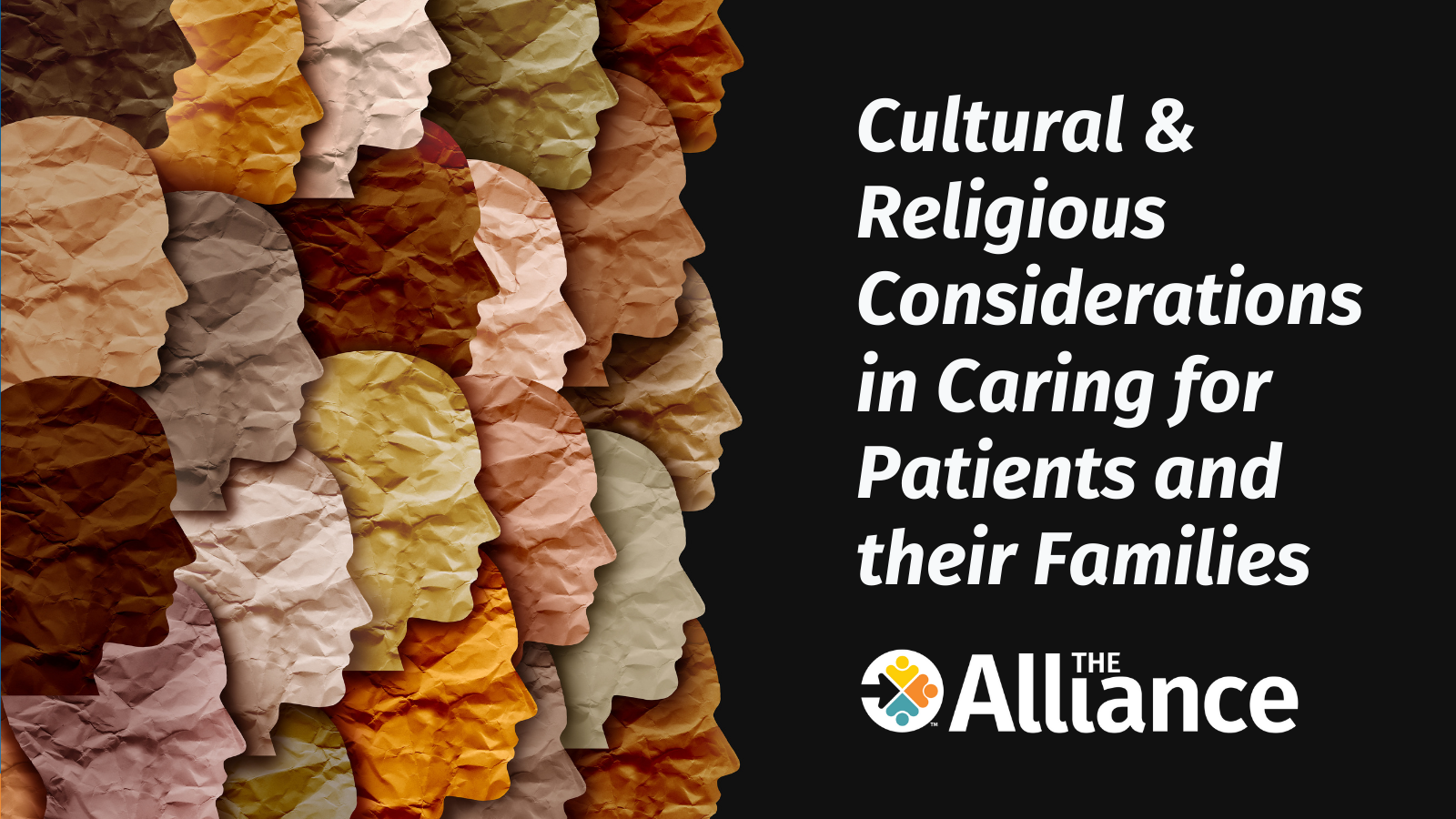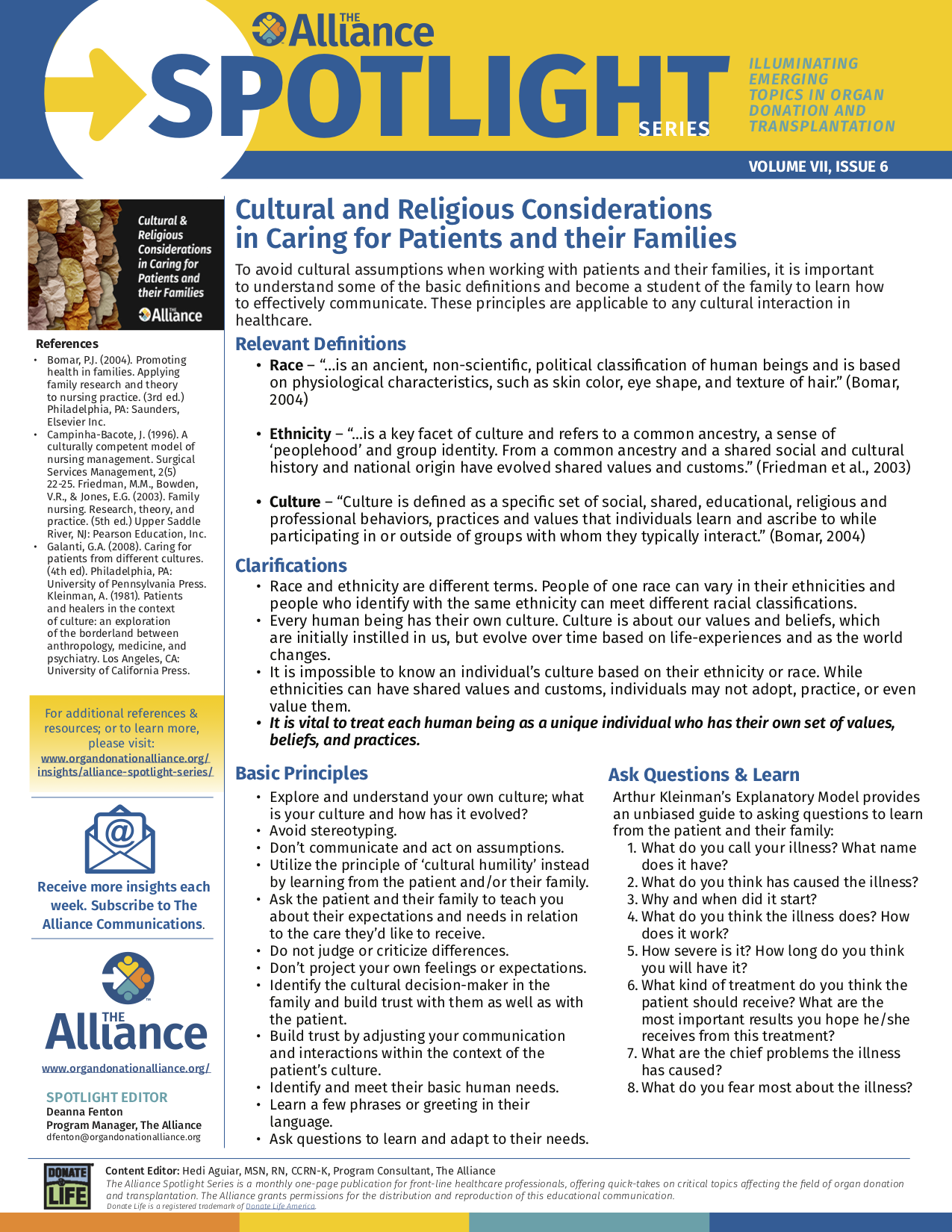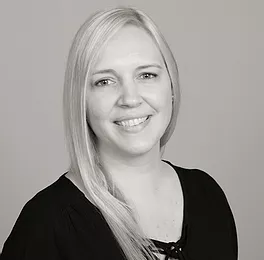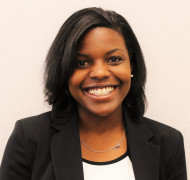To avoid cultural assumptions when working with patients and their families, it is important to understand some of the basic definitions and become a student of the family to learn how to effectively communicate. These principles are applicable to any cultural interaction in healthcare.
Relevant Definitions:
Race – “…is an ancient, non-scientific, political classification of human beings and is based on physiological characteristics, such as skin color, eye shape, and texture of hair.” (Bomar, 2004)
Ethnicity – “…is a key facet of culture and refers to a common ancestry, a sense of ‘peoplehood’ and group identity. From a common ancestry and a shared social and cultural history and national origin have evolved shared values and customs.” (Friedman et al., 2003)
Culture – “Culture is defined as a specific set of social, shared, educational, religious and professional behaviors, practices and values that individuals learn and ascribe to while participating in or outside of groups with whom they typically interact.” (Bomar, 2004)
Clarifications:
- Race and ethnicity are different terms. People of one race can vary in their ethnicities and people who identify with the same ethnicity can meet different racial classifications.
- Every human being has their own culture. Culture is about our values and beliefs, which are initially instilled in us, but evolve over time based on life-experiences and as the world changes.
- It is impossible to know an individual’s culture based on their ethnicity or race. While ethnicities can have shared values and customs, individuals may not adopt, practice, or even value them.
- It is vital to treat each human being as a unique individual who has their own set of values, beliefs, and practices.
Basic Principles:
- Explore and understand your own culture; what is your culture and how has it evolved?
- Avoid stereotyping.
- Don’t communicate and act on assumptions.
- Utilize the principle of ‘cultural humility’ instead by learning from the patient and/or their family.
- Ask the patient and their family to teach you about their expectations and needs in relation to the care they’d like to receive.
- Do not judge or criticize differences.
- Don’t project your own feelings or expectations.
- Identify the cultural decision-maker in the family and build trust with them as well as with the patient.
- Build trust by adjusting your communication and interactions within the context of the patient’s culture.
- Identify and meet their basic human needs.
- Learn a few phrases or greeting in their language.
- Ask questions to learn and adapt to their needs.
Ask Questions & Learn:
Arthur Kleinman’s Explanatory Model provides an unbiased guide to asking questions to learn from the patient and their family:
- What do you call your illness? What name does it have?
- What do you think has caused the illness?
- Why and when did it start?
- What do you think the illness does? How does it work?
- How severe is it? How long do you think you will have it?
- What kind of treatment do you think the patient should receive? What are the most important results you hope he/she receives from this treatment?
- What are the chief problems the illness has caused?
- What do you fear most about the illness?







